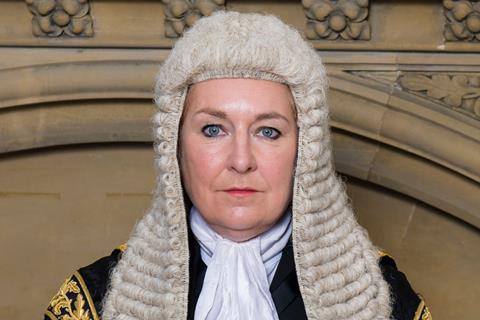Dame Sue Carr’s appearance before the House of Commons justice select committee last week began with constitutional fireworks. The lady chief justice’s responses to questions on the Post Office scandal and Rwanda bill suggested that, when it comes to defending judicial independence, she will take a very firm line.
Committee chair Sir Bob Neill began the session by alluding to reports in the media suggesting there had been some consultation between ministers and senior judiciary on proposed legislation to quash convictions in relation to the Post Office scandal.
‘It is not and never has been for the judiciary to comment on the wisdom of proposed legislation,’ Carr averred. ‘That is well established and something that the judiciary has never done and nor have I. So you are quite right to say that it follows that insofar as I have had any discussions with the lord chancellor I have not expressed any view on the proposed legislation as such.
‘I did, last Monday, at the lord chancellor’s urgent request have two short conversations with him remotely. That is the extent of the consultation which took place. But I am grateful for the opportunity to make absolutely clear that any suggestion the judiciary has given any proposed legislation the green light is not true.’
On reports that the PM planned to draft in 150 judges to fast-track Rwanda appeals, Carr said the suggestion drew matters of judicial responsibility into the political arena.
‘Parliament has legislated. We, the judiciary, have acted in preparation for that legislation,’ Carr replied. ‘But to be absolutely clear, matters of deployment of judges, the allocation of work for judges, and the use of courtrooms, is exclusively a matter for the judiciary, and more specifically a matter for myself and the senior president of tribunals. And it’s really important, chair, that people understand that clear division.’
That’s them told.
































1 Reader's comment